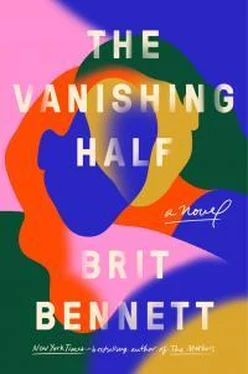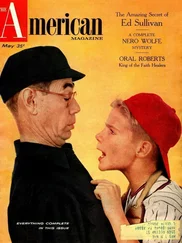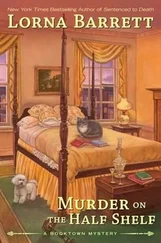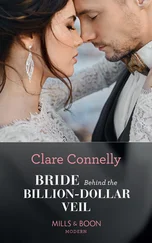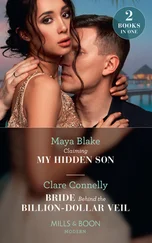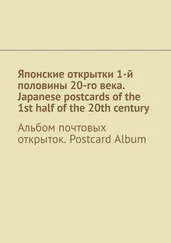“I was starting to think,” he said, but didn’t finish. He was five years older than her, and age aside, he was a serious man who believed in serious pursuits. It was becoming increasingly apparent that her acting career didn’t make the cut. At first, he’d seemed charmed. My California dreamer, he called her. He ran lines with her in the living room and met outside of auditions for recaps on the subway. But now, as he smiled plaintively across the table, she could see that he was less happy and more surprised, like a parent discovering that Santa Claus was actually real. He’d answered the letters and eaten the cookies and left the presents under the tree, but he’d never expected a fat man to come sliding down the chimney.
She worked harder in that musical than she’d ever worked at anything. She tacked bright flyers advertising the show on every storefront and lamppost she could find. She suffered the glares of neighbors when she practiced her songs in the stairwell, where the acoustics were better. In the morning, she soft-shoed across the bathroom tile, rehearsing the choreography as she brushed her teeth. When she wasn’t rehearsing, she rested her voice. Nobody who’d ever met her would believe this but it was true: for weeks, she barely spoke at all. She’d left 8 Ball by then and started at a coffee shop called Gulp, near the theater. The shows took up her evenings, and besides, bartending was a chatty field. Pouring coffee required less conversation. On her breaks, she drank tea and talked to no one. At home, Frantz gave her a small whiteboard where she passed him messages. Dinner? Heading out. Your mother called. He seemed tickled by it all, as if he’d been roped into a piece of performance art.
You’d be amazed by how loud the city sounded when you’d decided to be quiet. She became jittery, as easily spooked as a horse. Even the sudden sound of the coffee grinder made her jump. But when Jude pushed through the door, Kennedy heard nothing, not the bell jingling, not the street noise filtering in with the chill. For three years, she’d imagined what she might say to Jude if she ever saw her again. Now Jude stood across the counter, but when Kennedy opened her mouth, nothing came out. She couldn’t even whisper.
“I thought it was you,” Jude said.
She was still lean and ropy, bundled up in a big white coat that made her skin shine darker. And she was smiling. She was goddamn smiling, like they were old pals.
“I saw a flyer with your name,” she said. “We were walking by and I saw that flyer in the window and—wow, it’s really you.”
By the door, she recognized Jude’s boyfriend—his curly hair longer, beard darker, but still, unmistakably, him. He lingered by the window, blowing warmth into his hands, his shoulders flecked with ice. She couldn’t help it—she was surprised that they were still together. She knew his type—painfully handsome—and it wasn’t the type to love a girl like Jude. Sure, she was striking in her own way, but a pretty boy like him would never fall for a girl who was difficultly beautiful. But here they were, still together and in New York. What on earth were they doing all the way out here?
“How’ve you been?” Jude asked.
She was acting casual, but nothing about their friendship had ever been pure coincidence. She no longer believed in the magic of accidents when Jude Winston was concerned. A white man in a gray coat stepped inside the café, and Kennedy waved him forward. If she was back in Los Angeles, she probably would have sworn at Jude. But here, cocooned in her self-made silence, she could only ignore her. Jude looked startled, but stepped out of line.
The man paid for his coffee and left. Then Jude slipped a scrap of paper onto the counter. “This is where we’re staying,” she said. “In case you want to talk.”
—
SHE CALLED. Of course she called.
She knew she would even after she slipped the paper into her apron pocket. She didn’t throw it away—that was the first sign. The second was the fact that she kept thinking about it. One tiny slip of paper wedged in her pocket that might as well have been a razor, digging into her side. It made no sense for a piece of paper to bother her this much, and twice during her shift, she resolved to rip it into tiny pieces. But every time she pulled it out, she glanced at Jude’s small, neat handwriting. Hotel Castor, room 403, and the phone number. By the third time, it was too late. She’d already memorized the number.
After work, she stepped into the phone booth across the street and dialed. No one answered, and on the train she thought about calling again once she got home, but she didn’t want Frantz to overhear. How could she possibly explain this to him? That a black girl, claiming to be her cousin, had mysteriously appeared in the city. He’d think she was joking again. She called the next morning, right before work, and this time, Jude answered.
“I’m not supposed to be speaking to you,” Kennedy said.
Jude paused. For a second, Kennedy thought she didn’t recognize her voice, then she said, “Why not?”
“Because,” Kennedy said, “I’m in a musical.”
“I’m sorry,” Jude said evenly. “I don’t understand.”
“I’m not supposed to be speaking to anybody. I’m resting my voice.”
“Oh.”
“So whatever you have to say to me, just say it. I’m not wasting time going back and forth with you.”
“I’m not here to fight.”
“Then why the hell are you here?”
“Reese has surgery.”
The whole time, she’d imagined all that Jude could possibly want. Revenge, after that nasty thing she’d said to her at the cast party. Money, like her mother suggested. Well, good luck with that. One look at her life and anyone could tell that she didn’t have any. She could barely afford her rent. She imagined telling Jude this—a little ashamed, a little proud—but it turned out that she hadn’t resurfaced in New York because of Kennedy at all. Her boyfriend was sick—dying, even—and here Kennedy was, assuming Jude was thinking about her. “You know what your problem is?” a director had told her once. “You consider yourself your most fascinating subject.” She’d always thought everyone felt like a lead character onstage, surrounded by sidekicks and villains and love interests. She still couldn’t tell which bit role Jude was playing in her life, but she wasn’t even registering in Jude’s.
“Is it serious?” she asked. “I mean, is he okay?”
“It’s not like he’s dying,” Jude said. “But it’s serious. Yes, I’d say it’s serious.”
“Then why’d you come all the way out here? There aren’t any more surgeons in Los Angeles?”
Jude paused. “We’re not in Los Angeles anymore,” she said. “And it’s a special sort of surgery. You have to find a certain type of doctor who’ll do it.”
She was being vague, which, of course, only made Kennedy want to know more. But she couldn’t ask outright. It was none of her business, Reese’s life or Jude’s. This time, it seemed, their meeting was just an accident.
“Where do you live, then?” she said.
“Minneapolis.”
“What the hell are you doing out there?”
“I’m in medical school.”
In spite of herself, she felt a little proud. Jude was living the life she said she wanted, years ago. Still loved by the same man, on her way to becoming a doctor. And what did Kennedy have to show for all that time? A basement apartment with a man she barely understood, no college degree, a job serving coffee so that she could belt out songs in a half-empty theater each night.
“I’m glad you called,” Jude said. “I didn’t think you would.”
“Yeah, well, can you blame me?”
“Look, I know things ended sort of strangely—”
Читать дальше
